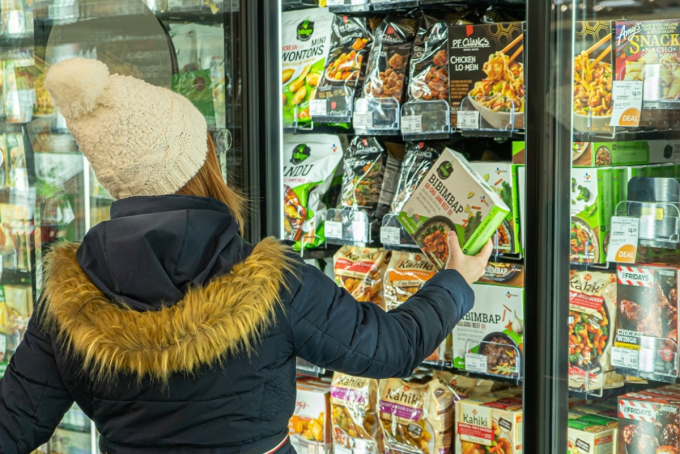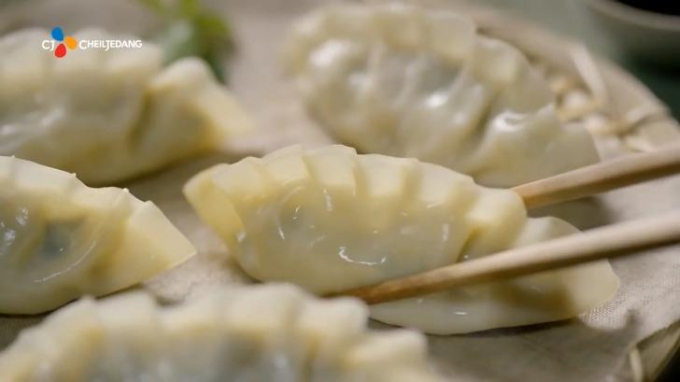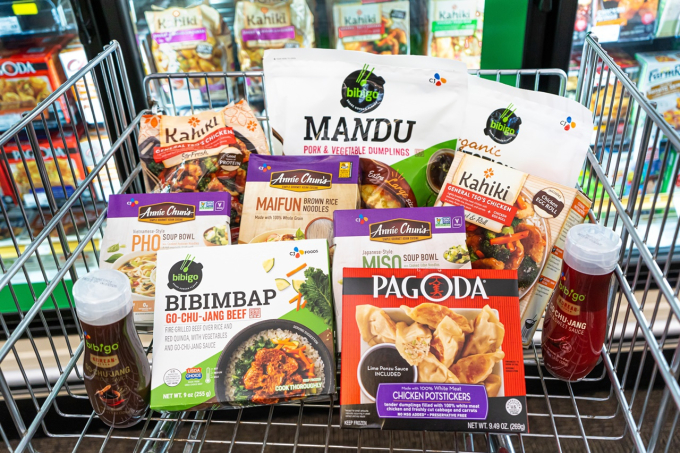F&B Industry
CJ Cheiljedang to set up food production plant in South Dakota
By Jan 13, 2021 (Gmt+09:00)
2
Min read
Most Read
LG Chem to sell water filter business to Glenwood PE for $692 million


Kyobo Life poised to buy Japan’s SBI Group-owned savings bank


KT&G eyes overseas M&A after rejecting activist fund's offer


StockX in merger talks with Naver’s online reseller Kream


Mirae Asset to be named Korea Post’s core real estate fund operator



South Korea's food and beverage giant CJ CheilJedang Corp. will establish a food production plant that makes mandu in the 560,000 square meters of land purchased in Sioux Falls, South Dakota, to meet rising demand for its products in the US market, the company said on Jan. 12.
This will be the company's 23rd plant in the US. CJ Cheiljedang already operates production plants in California, Texas, Ohio, New Jersey and New York.
The Sioux Falls-based plant will produce popular items such as frozen mandu. Last year, the company’s prized item Bibigo mandu pulled in over 1 trillion won ($913 million) in sales, with 65% of its overseas sales coming from the US market, countering the commonly held view that Korean food can only succeed in Korea or with Korean residents who live abroad.
This year, the company aims to raise the US sales portion to account for 70% of overseas sales.
“Our US-based plants’ operation rate is around 90%,” said a CJ Cheiljedang official. “We secured additional production lines to prepare for growing demand," the official said.

Mandu is a dish enjoyed worldwide, bearing many monikers, including dumplings, ravioli, dim sum, gyoza, tortellini and wontons, depending on where they are consumed and how they're made.
It is made by filling up a thin layer of dough with various ingredients ranging from meat to vegetables. They are usually cooked by frying, steaming or boiling.
CJ Cheiljedang first introduced its food brand Bibigo to the US in 2013. It initially tapped into the local market by offering Bibigo Mini Wontons, a dish that US consumers were already familiar with. In 2015, the company set up a separate R&D group to reflect local consumer trends into the products, and in 2018, the company began rolling out Korean-style mandu in the US market.
Bibigo’s growth accelerated further when CJ Cheiljedang acquired Schwan’s Company, a leading frozen pizza maker in the US. Since October of last year, Bibigo mandu has penetrated across the US via Schwan’s existing distribution network.

CJ Cheiljedang has also expanded its US-based sales channels, selling Bibigo products in major superstores, grocery stores and retail chains, including Walmart, Kroger, Target and Food City.
CJ Cheiljedang plans to develop the next Bibigo mandu product at the new Midwest plant. The company also expects its Korean fried chicken, instant rice and Korean dried seaweed products to have promising growth potential.
Meanwhile, the company will work to raise awareness for healthy fermented products by expanding the base for Korean sauces such as the spicy red chili paste gochujang and kimchi, a spicy fermented cabbage dish, to align with the growing trend of hot sauces becoming a fixture for US consumers.
Write to Bora Kim at destinybr@hankyung.com
Danbee Lee edited this article.
More to Read
-
 Korean musicBTS sweeps Spotify's most-streamed K-pop list in 2020
Korean musicBTS sweeps Spotify's most-streamed K-pop list in 2020Jan 07, 2021 (Gmt+09:00)
1 Min read -
 K-contentK-content companies set to rule 2021 stock market after breakneck growth
K-contentK-content companies set to rule 2021 stock market after breakneck growthDec 14, 2020 (Gmt+09:00)
3 Min read -
 K-food boomKorea's signature sauce gochujang goes global, riding on K-wave
K-food boomKorea's signature sauce gochujang goes global, riding on K-waveOct 19, 2020 (Gmt+09:00)
3 Min read
Comment 0
LOG IN


